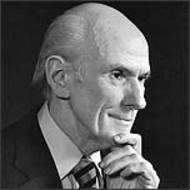April 5, 2000
By Alan Cranston
Global Beat Syndicate
SAN FRANCISCO — This Sunday, a live television drama will reintroduce millions of viewers to the dangers posed by nuclear weapons. The CBS television network will broadcast a remake of Fail Safe, the 1964 best-selling novel and subsequent film about how a nuclear war could be launched accidentally.
In the novel by Harvey Wheeler and Eugene Burdick, a computer glitch leads the United States to launch a nuclear attack against Russia. In response, an American president accedes to a Russian attack on New York City in retribution for the destruction of Moscow.
It’s a tale from the tense days of the Cold War. Unfortunately, despite the progress that has been made in nuclear-arms reduction since the book was first published, the dangers it depicts are as great today as they were 36 years ago.
The reality is while the world has so far managed to avoid such a nuclear catastrophe, there have been more than 1000 false alarms leading to the mistaken assumption that one super power had launched a weapon against the other. At least three of those incidents came dangerously close to triggering a nuclear exchange.
Today, the United States and Russia continue to have more nuclear warheads than actual targets. Both maintain their bristling nuclear arsenals on a state of hair-trigger alert. Both continue to adhere to the Cold-War era doctrine of launch-on-warning. This policy gives either the U.S. or Russian president only 15 minutes to evaluate whether an apparent nuclear attack is real.
While the danger of an intentional nuclear confrontation between the United States and Russia has declined since the collapse of the Soviet Union, the potential for an accidental nuclear strike has actually increased in recent years. The chaos within Russia has led to a sharp decline in that nation’s command-and -control system, as well as the deterioration of its early-warning systems. Both raises the potential of an accidental or unauthorized launch.
Meanwhile, the threat of terrorists or rogue states buying or stealing weapons from Russian soldiers and scientists, many of whom remain unpaid, continues to grow. Former Russian defense minister Igor Rudinov warned in 1997 that Russia could “lose control over its nuclear arsenal for lack of funds.”
Fail Safe hearkens back to a time when the danger of nuclear war was a prominent topic of political debate. Now, it is past and present military leaders who warn that the use of weapons of mass destruction is actually more likely today than it was during the Cold War.
Former Secretary of Defense William Perry has cautioned that “It isn’t a question of whether, but of where and when” such weapons will be used. Gen. Charles Horner, who commanded allied air forces in the Gulf War, has said he expects a nuclear weapon will be exploded in some city, probably American, within 10 years.
Ironically, it is the U.S. military leaders who once controlled the nation’s nuclear arsenal — including former generals Colin Powell and Andrew Goodpaster — who have become the most passionate advocates of the elimination of the nuclear arsenal.
As retired Gen. Eugene Habiger, former commander of U.S. nuclear forces, recently said, “We have reached the point where the senior military generals responsible for nuclear forces are advocating, more vocally, more vehemently, than our politicians, to get down to lower and lower weapons levels. Think about that.” His predecessor as commander at the Strategic Air Command, retired Gen. Lee Butler, warns that “We cannot at once hold sacred the miracle of existence and hold sacrosanct the capacity to destroy it.”
As the world’s sole remaining superpower, the creator of the nuclear bomb and still the only nation ever to use it, the United States bears a special responsibility to lead the world away from the brink of Armageddon not only by removing its arsenal from hair-trigger alert but by redoubling its efforts to reduce the total numbers of weapons, with the ultimate goal of their total elimination.
The recent rejection of the Comprehensive Test Ban Treaty by the U.S. Senate, the fact that Russia’s parliament has yet to ratify the START II agreement and the Clinton administration’s continued pursuit of a missile-defense system all show how Fail Safe remains a tale for our times. Perhaps Sunday’s dramatic presentation of the dangers of either an intentional or accidental nuclear attack will reawaken efforts to eliminate these weapons entirely.
Former Sen. Alan Cranston, D-CA, served from 1969 to 1993. He is currently the president of the Global Security Institute in San Francisco.
© 2000 New York University. All Rights Reserved. The Global Beat Syndicate,
a service of New York University’s Center for War, Peace, and the News
Media, provides editors with commentary and perspective articles on critical
global issues from contributors around the world. For more information,
check out https://web.archive.org/web/20051226015045/https://www.nyu.edu:80/globalbeat/syndicate/.
Jonathan Granoff is the President of the Global Security Institute, a representative to United Nations of the World Summits of Nobel Peace Laureates, a former Adjunct Professor of International Law at Widener University School of Law, and Senior Advisor to the Committee on National Security American Bar Association International Law Section.







